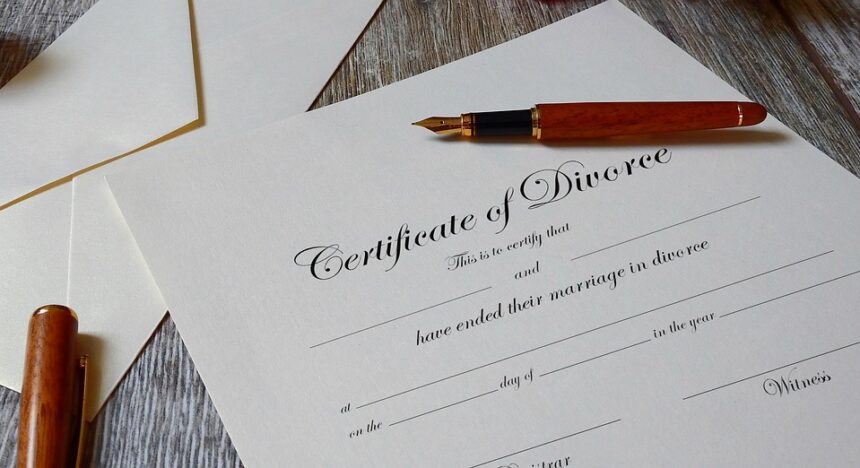Divorce can be stressful. If you’re also low-income, it’s even harder. It’s normal to observe how quickly the legal costs and other expenses add up. We all of them are familiar with that. There is good news, however: help is available. There are plenty of inexpensive ones available to zero in the process. In this article, we describe how and where to find divorce assistance for low-income families. It will even tell you how to navigate the system without going broke.
Know Divorce Help for Low-Income
Legal Aid and Resources for Divorce Assistance in Low-Income Households Such services assist people in navigating the legal process for little or no cost. Both numerous organizations and government programs offer this assistance. Not everybody can pay high legal bills, they hear.
Access these resources to protect your rights. You also get one small thing out of the way at a challenging moment. Even if you believe you can’t afford help, there are ways to get support.
Legal Aid Organizations
It is a good idea to start with legal aid organizations. These are non-profits that work with low-income people on legal issues. Many specialize in family law, which includes divorce. You have been provided with free of cost services or very low-cost services.
Search for legal aid offices where you are. They exist in most U.S. states. These offices will link you up with lawyers or legal assistants who can assist. Check, some even offer free consultations. You’ll discuss your case and options during those meetings.
Benefits of Legal Aid Organizations:
- Free or low-cost legal advice.
- Help with filing paperwork.
- Access to experienced attorneys familiar with family law.
Court-Approved Mediators
Image Source.
Divorce does not always have to be a battle. Mediation is another option. It is often cheaper and faster than going to court. Mediators help both spouses agree on important issues. These include property division, child custody, and support.
Some courts offer free or low-cost mediation services for low-income individuals. Ask your local family court if they provide this assistance. This option works well if both parties are willing to cooperate.
Online Legal Services
If you can’t find a therapist locally, take a look at online resources. Numerous websites provide legal forms and advice. Others focus on providing divorce aid to low-income families. Good, cheap options are attorneys at sites like LegalZoom. They walk you through filling out certain paperwork and filing it in court.
These services are not free; however, they are often less expensive than hiring a lawyer. Be cautious, though. Select a reputable website (they are not all created equal). Reading the reviews will save you from being scammed.
Divorce Assistance For Low-Income Community-Based Resources
Your local community is a great resource. Religious institutions, non-profits, and social welfare organizations frequently aid low-income families. And some have free legal clinics. Others refer you to inexpensive lawyers.
Workshops in divorce and family law could also be hosted at community centers. Such events serve as a crash course on your rights and responsibilities. The best part? Most of these resources are free or inexpensive.
Filing Without a Lawyer
Try to remember you have probably heard about doing divorce by yourself This is known as a “pro se” divorce. If your divorce is straightforward, that can be a wise move. For example, you and your spouse are on totally the very same page about whatever responsibilities: property division, child(all kids) custody, and so on.
Many courts have guides on going it on your own, step by step. Free or low-cost legal forms are frequently found online, as well. Avoiding an attorney costs less money, but filing takes meticulousness. Complete this checklist for peace of mind before starting.
Pro Bono Attorneys
Image Source.
Some lawyers work for free. They are called pro bono attorneys. Many of them take on cases to help those who cannot afford legal fees. Local bar associations usually maintain a list of pro bono lawyers.
Contact your state or county bar association. Ask if they can refer you to a pro bono lawyer who specializes in divorce cases. This option is ideal if your case is complicated and needs expert help.
State-Specific Programs For Divorce Assistance For Low-Income
Some states offer special programs for divorce assistance for low-income residents. These programs might include fee waivers or reduced filing costs. In some cases, courts may waive filing fees if you prove financial hardship.
Check with your local family court. They often provide information on low-income divorce options. Each state has its own rules, so it’s important to learn what applies to you.
Help for Domestic Violence Victims
Or if there is domestic violence, there is more help available. Numerous shelters and advocacy groups provide free legal assistance. They also offer emotional guidance throughout the divorce process.
There, organizations like the National Domestic Violence Hotline can link you with resources. Such groups assist in keeping you safe as you face the legal system. If that is you, please don’t be afraid to reach out. In this case, your safety takes precedence.
Support from Friends and Family
Do not underestimate the power of human connections Family and friends can be a source of emotional as well as financial backing. They might also help you identify resources. And sometimes all you need is someone who actually gives a proper time to discuss different matters.
Be open with your trusted friends and family about what you’re experiencing. They may have information about local programs or charities that can provide assistance. Ask for help — do not be scared. Remember, asking for help is not a sign of weakness. Find your happiness by cultivating joy and purpose in life through these meaningful connections and support systems.
How to Choose the Right Option
The search for appropriate support can seem daunting. First figure out what you need. Will You Require a Lawyer for a Contested Divorce? Should I get a lawyer for a contested divorce? Or do you need assistance completing straightforward paperwork? It makes searching easier when you know what you need.
Next, research your options. Do Internet searches, call local courthouses, visit community centers. Take notes on the resources you discover. Then reach out to them individually. Inquire about costs and services.
Finally, make your decision. Select the one that suits your requirements and which works within your budget. Just remember: You are entitled to ask for help.
Final Thoughts on Divorce Assistance For Low-Income
Divorce is never easy, and when money is tight, it can be even harder. But there are plenty of resources that can help. Options include civil legal aid organizations, pro bono lawyers and community programs. Online services and state-specific programs also provide inexpensive options.
If you’re unsure of any direction, begin small. Contact a local court or community center. Even a brief telephone call can direct you to assistance that is invaluable. Cheap divorce help for low-season families is here. And you can certainly get through this time of stress and uncertainty, but, with appropriate support. If you’re wondering, Do I need a divorce lawyer if we agree on everything? We have got your back. Explore more relevant articles on our site for help and relevant info. With appropriate support, you can certainly get through this time of stress and uncertainty. You may also follow our official Facebook and Twitter pages for more guide alerts.

Smart Divorce Network is a blogger-based community that gives divorce professionals a unique platform to share insights and knowledge. Smart Divorce Network is the leading destination for smart divorce discussions between peers. You can share your thought and/or your articles here.







